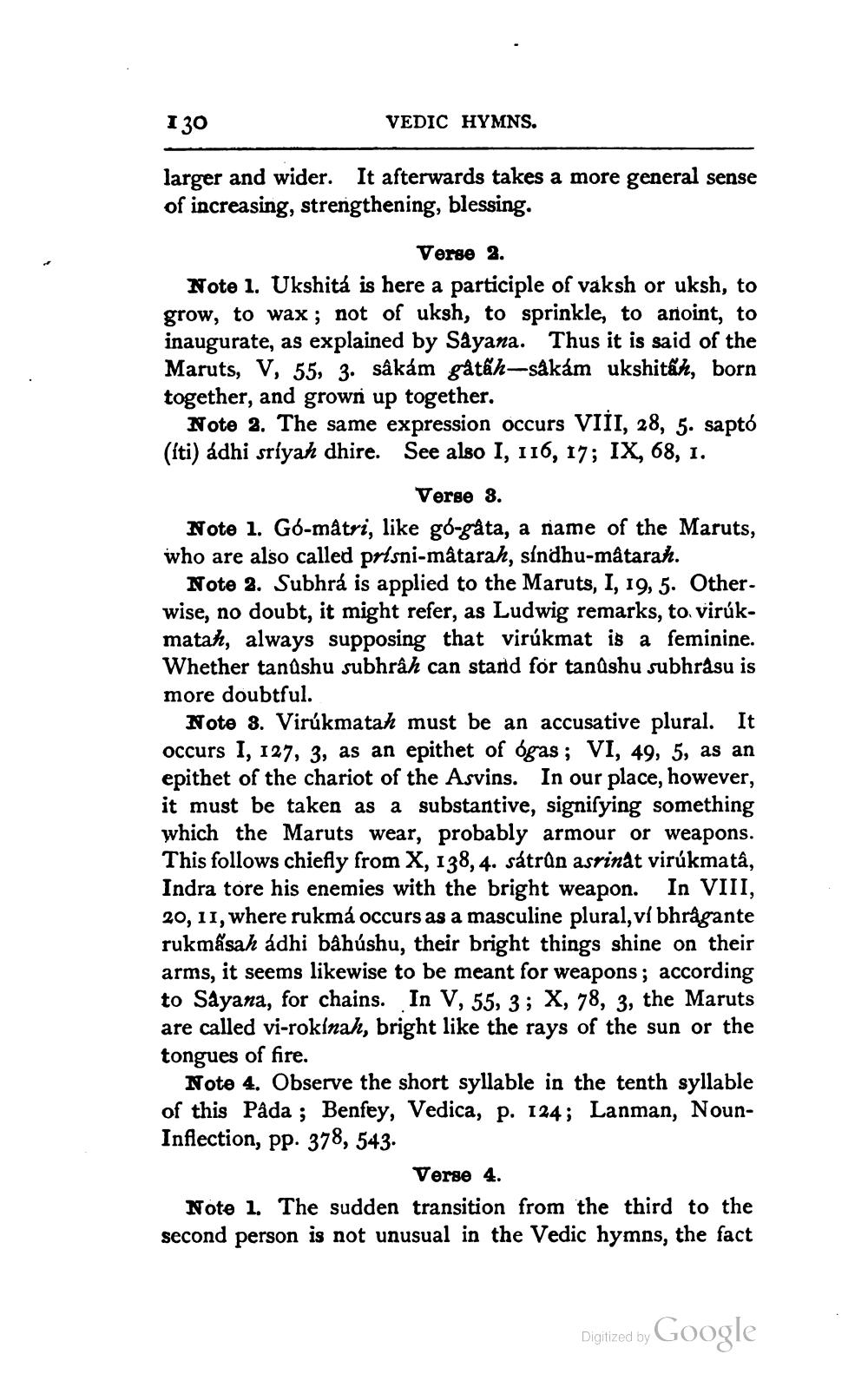________________
130
VEDIC HYMNS.
larger and wider. It afterwards takes a more general sense of increasing, strengthening, blessing.
Verse 2. Note 1. Ukshitá is here a participle of vaksh or uksh, to grow, to wax; not of uksh, to sprinkle, to anoint, to inaugurate, as explained by Sayana. Thus it is said of the Maruts, V, 55, 3. sâkám gåtáh-såkám ukshitäh, born together, and grown up together.
Note 2. The same expression occurs VIII, 28, 5. saptó (íti) ádhi sriyah dhire. See also I, 116, 17; IX, 68, 1.
Verse 3. Note 1. Gó-matri, like go-gåta, a name of the Maruts, who are also called prisni-mâtarah, sindhu-måtarah.
Note 2. Subhrá is applied to the Maruts, I, 19, 5. Otherwise, no doubt, it might refer, as Ludwig remarks, to virúkmatah, always supposing that virúkmat is a feminine. Whether tandshu subhråh can stand for tanúshu subhrasu is more doubtful.
Note 8. Virúkmatah must be an accusative plural. It occurs I, 127, 3, as an epithet of bgas; VI, 49, 5, as an epithet of the chariot of the Asvins. In our place, however, it must be taken as a substantive, signifying something which the Maruts wear, probably armour or weapons. This follows chiefly from X, 138, 4. sátran asrinat virúkmatâ, Indra tore his enemies with the bright weapon. In VIII, 20, 11, where rukmá occurs as a masculine plural, ví bhrågante rukmấsah ádhi bâhúshu, their bright things shine on their arms, it seems likewise to be meant for weapons; according to Sayana, for chains. In V, 55, 3; X, 78, 3, the Maruts are called vi-rokinah, bright like the rays of the sun or the tongues of fire.
Note 4. Observe the short syllable in the tenth syllable of this Påda ; Benfey, Vedica, p. 124; Lanman, NounInflection, pp. 378, 543.
Verse 4. Note 1. The sudden transition from the third to the second person is not unusual in the Vedic hymns, the fact
Digitized by
Digized by Google




